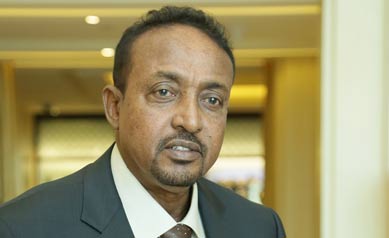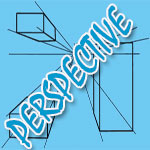Fight Like A Liberation Front; Think Like An Opposition
![]()
Isaias Afwerki’s twenty- two years of misrule reaffirms the old adage that revolutions, quite often, are not caused by vision-inspired or ideology-intoxicated revolutionaries but by the sheer stupidity and brutality of governments. Eritrea’s PFDJ has climbed the Everest of stupidity and brutality and won the envy of North Korea and those that have, likewise, gone rogue.
PFDJ’s well-deserved notoriety is the reason some of my friends and I had decided to not engage them; early on we found out that we were poorly armed against their ornery. Unfortunately, many good-intentioned Eritreans have their backs mottled by the blows of bastinados received from the rueful blowhards who like dogs have the habit of attacking in throngs—a shellacking for voicing dissent. The proverbial shebia halengi has instilled fear even among those Eritreans who call America home—the land of the-free-and-the-brave. Years of tawdry partisanship and indoctrination has seared them emotionally that they could not even sympathize with their own kith and kin that have fallen victim to the regime’s brutality. The tide is now changing against them. They are losing their chrysalis; fast retiring to their lair.
There is no doubt that the regime has dug its own grave and will certainly fall under its own weight, but not without a revolutionary shove or a nudge. To be a revolution, nonetheless, one has to be led by people of ideas and action. Widespread grievances and frustrations among the populace do not necessarily translate into revolutionary action; leaders are needed to mobilize and organize them. Articulating grievances and offering better alternatives is the domain of ideas while implementing the vision into reality is where action is needed.
The disparate groups in the “Opposition” must coalesce; unity is not a luxury that can be ignored but a necessary prerequisite that must be achieved if any public endeavor is to succeed. Producing more with less will be the ultimate test of our political prudence. How we build an effective coalition, rally behind a common goal, and marshal and effectively use our limited resources is an important portent of our future governance. This is where the oppositions’ grit and commonsense will be tested.
Factions, differences and conflicts are permanent fixtures of our lives and without them there would not be a need for politics. Solving problems to the satisfaction of the majority without infringing on the fundamental rights of the minority should be our principal aim. Toward this end, we should manage the unavoidable and avoid the unmanageable. Prioritization and focus is what we need. The urgency of now should supersede any other considerations. What we do now determines our future. It will help to constantly remember that in the long run we are all dead (Keynes). Winning and being relevant now is crucially important.
Act and fight like a liberation front and think like an opposition.
The term “opposition” is very misleading; it has different meaning in democratic, authoritarian and totalitarian governments. The political parties in liberal democracies like the US are organized on ideological basis to offer a choice on how the country should be governed. The parties have to vie for votes in fair and open elections. The governing party or a coalition of parties is the one in power and those that are out of power are the opposition parties. The primary goal of the opposition parties is to unseat the ruling party by becoming an alternative the public will support. Parties are presumed to be a good thing and the more competitive the electoral system the better the democracy. Parties in this system are adversarial opponents and not enemies; they are an integral part of a check and balance that safeguards liberty. There is no state in the Horn of Africa that can be designated as a liberal democratic state; Somaliland is the closest we have.
Authoritarian governments allow opposition parties to operate but their freedom to organize and mobilize their supporters is severely curtailed. Authoritarian governments are oppressive and restrictive but not inherently evil and they can be reformed. Under this system, the opposition parties focus most of their activities on civil disobedience and sometimes outright revolt that involves instigating mass uprisings. As long as the ruling party is willing and ready to change, its dissolution is not a prerequisite for the opposition parties to play their rightful role. Political and diplomatic pressure and economic hardship could easily incentivize the ruling parties to open up and liberalize. Depending on the prevailing situations, opposition parties under authoritarian systems can operate as in liberal democracies or in totalitarian states or a hybrid of the two. Ethiopia and the Sudan are good examples.
In reality, the opposition parties will never unseat the party-in-power and when they hardly ever come to power they are at a great disadvantage since they had spent little time preparing themselves for governance. This is the problem Egypt is facing. Fighting for change is a lot easier than actual governance. Maintaining a coalition of disparate and poorly organized groups, whose opposition to the ruling party was the only thing that kept them together, is very difficult. This is further exacerbated by the fact that authoritarian governments thrive by favoring one group at the expense of another. The trust deficit among the many social and political groups will dilute any chance the new and inexperienced government might have in transitioning the country into a democratic state.
In a totalitarian state like Eritrea, political parties are deemed evil and enemies of the state. There are no opposition parties in Eritrea and the only party is the ruling party. For parties to exist in Eritrea, the system has to be abolished. The struggle for change is a zero-sum game; either the regime has to go or the struggle for change has to be defeated. The current struggle for change is not much different from our previous liberation struggle; the enemy has to be defeated. Higdef is derg reincarnate. We defeated the derg and we must do the same with higdef.
It is very important for the Eritrean opposition to act and fight as liberation front if it is to affect and expedite change. But since we are witnessing a clear and imminent demise of higdef, it is equally important to think as an opposition in a liberal democracy—the issue of governance is real. While rightfully focusing on political issues, the opposition must learn about economic and development issues for they will occupy the driver’s seat in post higdefite rule.
Let’s keep one eye in the present and the other in the future.



Awate Forum